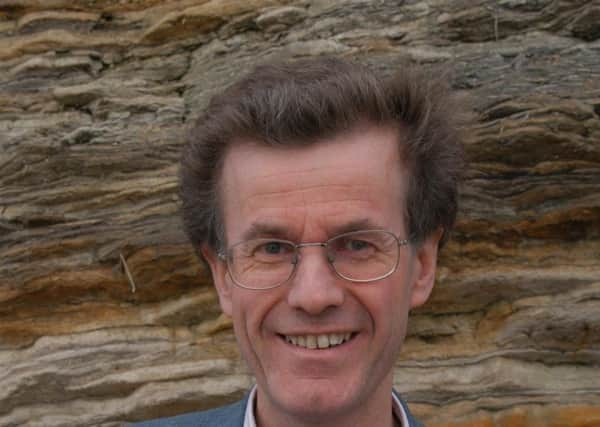Book reviews: The Scottish Ambassador by Robert Crawford | There's A Witch In The Word Machine by Jenni Fagan


If there were any doubt about the strength and diversity of poetry in Scotland, these two collections ought to dispel it with immediate effect. One might be forgiven for thinking there is a kind of gender and power split between them – the official and the sorceress, one written by a professor and one by a self-confessed “literary street urchin” – yet they show remarkable signs of convergence.
Crawford’s 16th collection has as its spine incantatory evocations of Scottish places. They somewhat resemble his translation of Gaelic war-song; a kind of hasty, breathless accumulation. His version of Glasgow, for example, is “All second-city edginess, fossil grove, puddled panache, / Operatic, fat, incessantly jumpy with static, / Gralloching yourself, tearing yourself apart, / To hit back through lesions or drooled ferro-concrete bridges”. Edinburgh meanwhile is “Knox-talk, broderie, Brodies, bestial vennels, / Drug deals done under too many bridges” and Dundee is “Oncologists’ baronial bolthole, home port of gamers. Eh? Eh? / Your dream job: to be misunderstood”. These quotes do not do justice to the sheer relentlessness of the verse, often deploying internal rhymes and half-rhymes to drive along the joyous pandemonium.
Advertisement
Hide AdAdvertisement
Hide AdA whole collection in this style would not work, and it is testament to his skill in putting together a collection that Crawford knows when to be piano and when to ring out the forte. Smaller, more haiku-like pieces intersperse the exuberance. Some of these are twinned translations, in Scots, from ancient Greek writers like Simonides and Sappho and classical Chinese writers such as Li Bai and Wang Wei. Others are almost whispers of poems. There is a pleasingly modest religiosity about some of these, a quiet sanctity: “Feel your wrists / Pulsing with worship”; or the entirety of “Home” – “The dark universe / Is full of candles, burning / For our safe return”. These remind me of the great Metaphysical Poets of the 17th century, such as Vaughan or Herbert, although more laconic and chiselled. There is some riddling wit in all of this, especially in “Search Engine”, where Google is broken down into Go, the Chinese game, and ogle, where the programme is “oracle of all our porn”. This is an exceptionally fine collection, and a model for how to nuance the stylistic shifts. Too often I have read collections and thought ,“This poem is actually identical to the previous one.” Not so here.


Nor, indeed, in Jenni Fagan’s second collection. Like Crawford’s, it has a thread binding it together; in this case a series of “spells”. As Crawford tours Scotland, Fagan writes of Paris, New York, Detroit and Los Angeles. In an especially powerful poem she also writes of “Bangour Village Hospital”, with its striking opening lines “I was born here / then a little while later I died”. It is an uncompromising poem where the narrating patient says, with a savage irony, “They electrocuted / synaptic transmissions until we were all / forget-me-nots!” It is the longest poem in the collection and serves as a kind of fulcrum for the whole, balancing Fagan’s concern with various forms of outcast, as the shunned and the exorcised.
It is also a collection which is frank in marrying properly erotic poetry with an undertow, always, of elegy. Even in an ostensibly “non-lover” poem it is discernible – to quote it in full, “This / world / is / enough / to make your heart / hurt / all / the time”. I very much admired Fagan’s first collection, and this shows some interesting developments in her style. There is perhaps less polemic and more caution, shown particularly in her use of parentheses. In “Spell For A Woman In Waiting” the reader encounters a kind of double-stumble of thought: “you can wait / for responses / of all and any kind / he has exes to inform / (perhaps) or (not) / but possibly” and “he will / never (say or not say) / what this is / or will be, or when he’ll / arrive or who will ever know / (it will be nobody).”
Some of the language has become more askance than in her first collection. I was taken by phrases like “the nothing sky” and “the angularity of acceptance”. She must also be the poet who has used the f-word to most dramatic effect. The poem “O.C.D.” is a form of O.C.D. in itself with that word screaming around in an almost hypnotic manner. There is, as with Crawford, a strange hankering for something numinous. In Fagan’s case it is not conventional Christianity (I don’t believe in Christianity ever being conventional) but there is a yearning in the book. The final poem, ends with “to dreamers / to dreaming – they must all hear this / it is time to rise / we heart beaters… / it has been decreed – stamped / issued by angels / in Paris”.
Both poets have a fondness for lines that shrink to a word, and more often than not the emphasis is worth the contraction. (Is a single word even a line? Cleverer brains than mine can figure that one out). But both are works about love. Love of place, love of another, the lovelorn, the unloved. The length of a line matters little compared with that.
The Scottish Ambassador by Robert Crawford, Cape Poetry, £10. There’s A Witch In The Word Machine by Jenni Fagan, Polygon, £8.99. Robert Crawford is at the Edinburgh International Book Festival on 17 August; Jenni Fagan appears on 13 and 15 August